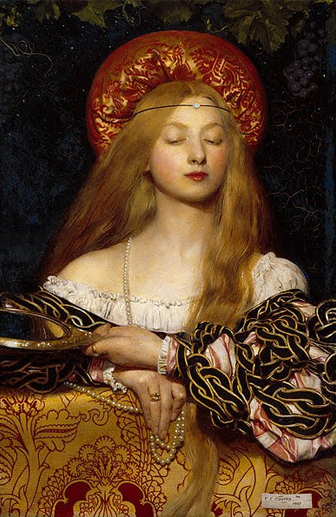WAR IS just around the corner, but you would never guess it from the expressions of the worthies gath-ered around the luncheon table in Frederick William Elwell's The Royal Academy Selection and Hanging Committee 1938. Some things never change. The air is thick with the fug of post-prandial cigar smoke; the diners exude the quiet authority, the collective institutional certitude of men safe in the knowledge that their world and its values can never be threatened.
Their work is done. Now, having selected the works to be shown in the 1938 RA Summer Exhibition, they are relaxing in the afterglow of a fine lunch. Their portraitist is left to savour its remains, painting the crisp linen, the RA silver and crystal and emptied decanters with the unsparing attention to detail that might, in Pre-Raphaelite times, have carried some kind of moral or theological weight. Here, of course, it does no such thing. F W Elwell, recently put up for election as a Royal Academician, simply seems enthused by the opulence of a club he has been privileged to join. He cannily submitted this painting as his Diploma Work, the ''specimen of ability'' required by the RA of those invited to bear its initials after their names. His appeal to the self-esteem of those who would judge him worked. The Diploma Work was accepted; F W Elwell became F W Elwell RA.
His painting makes a telling introduction to ''The Edwardians and After'', a survey of some 60 such Di-ploma Works spanning the first 50 years of this century. Academicism might be described as the adherence to styles and aesthetic precepts that have had their day; in those terms, Royal Academicism is academic with a vengeance. The old coves preserved in Elwell's pictorial amber are doughty representatives of a tradi-tion in...


